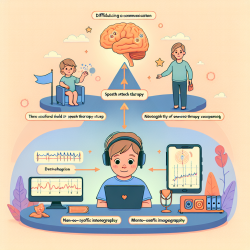Revolutionizing Coma Prognosis: A Leap Forward in Neurological Care
In the realm of neurology, the ability to predict the outcome of a coma can significantly influence the decisions made by healthcare providers and the families of patients. A recent study titled Development of a Point of Care System for Automated Coma Prognosis: A Prospective Cohort Study Protocol offers promising insights into improving coma prognosis through innovative methodologies.
Understanding the Research
The study focuses on developing an automated system for coma prognosis using advanced machine learning techniques applied to EEG and event-related potentials (ERPs). Traditional methods, like the Glasgow Coma Scale, often fall short in accuracy. However, this research introduces a novel approach by leveraging continuous EEG/ERP data collection and analysis.
Key Highlights of the Study
- Continuous Data Collection: The study records 24-hour EEG/ERP data from comatose patients across multiple time points, offering unprecedented accuracy in tracking patient changes.
- Machine Learning Integration: By applying machine learning to EEG/ERP data, the study aims to automate and enhance the accuracy of coma prognosis.
- Comprehensive Analysis: The research assesses different levels of sensory, cognitive, and language processing to predict emergence from coma.
Implications for Practitioners
For practitioners, this research provides a pathway to improve skills in coma prognosis. By adopting the methodologies outlined in the study, healthcare providers can:
- Enhance the accuracy of prognosis, leading to better-informed decisions.
- Reduce the dependency on highly specialized neurophysiologists by using automated systems.
- Contribute to the development of low-cost, easy-to-use diagnostic tools for critical care settings.
Encouraging Further Research
The study's findings open avenues for further research in the field of automated neurological assessments. Practitioners are encouraged to explore how machine learning can be integrated into other areas of neurology and critical care. By doing so, they can contribute to the evolution of healthcare technology and improve patient outcomes.
Conclusion
This groundbreaking research not only enhances our understanding of coma prognosis but also sets the stage for future innovations in neurological care. Practitioners are encouraged to delve deeper into this study and consider how its findings can be applied in their practice.
To read the original research paper, please follow this link: Development of a point of care system for automated coma prognosis: a prospective cohort study protocol.










